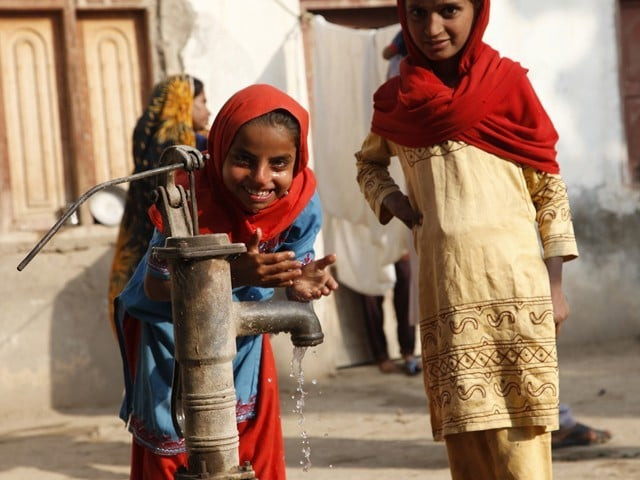Gastro rising: Rains coupled with feisty iftaris, down people
Hospitals from the twin cities report rise in the patients of gastro and diarrhoea.

Frequent showers and sudden changes in climate coupled with spicy and oily iftaris have ushered in the season of diarrhoea and stomach-related diseases. Hospital sources from the twin cities warned on Saturday against the outbreak of gastroenteritis and other gastric illnesses.
Talking to The Express Tribune, Dr Waseem Khawaja, a senior gastroenteritis specialist at Pakistan Institute of Medical Sciences, said they had received about 93 patients suffering either diarrhoea or gastroenteritis in the past 24 hours.
Similarly, Dr Sharif Astori, Polyclinic Hospital spokesperson, said on an average about 150 patients suffering from diarrhoea, gastroenteritis, hepatitis A and E visit the hospital daily.
The situation is not much different in Rawalpindi either. More than 60 patients complaining of some form of stomach problem have visited the emergency ward of Benazir Bhutto Hospital (BBH).
Out of these 30 to 35 were children. Three of them had to be admitted.
Dr Qaiser Aziz who works at the medicine department of Holy Family Hospital said the reason behind spread of these diseases is consumption of contaminated water.
“There are many people who use tap water or water without boiling, which causes various stomach diseases,” he said.
He said heaps of garbage in every street of Rawalpindi mixes in with the rainwater which eventually seeps into the ground. “The underground water is contaminated, which is pumped out for domestic usage,” he added.
The leaking sewerage lines are also contributing to increased gastric diseases. “Due to lack of water filtration plants in Pindi and awareness among people about consuming clean water, such outbreaks are witnessed almost every year,” he said.
Dr Waseem Khawaja said change in the dietary patterns during Ramazan cannot be ruled out either. “Contaminated water along with bakery products, pakoras, samosas and substandard beverages all contribute to such outbreaks,” he said.
Dr Astori from Polyclinic Hospital said people should cook fresh food every day at home and avoid eating food kept in refrigerators for
long, as prolonged power outages can result in the food going bad.
In demand, but out of supply
As the onslaught of gastric diseases gains intensity, Basic Health Units (BHUs), Rural Health Centres (RHCs) and Tehsil Headquarter Hospitals in the Rawalpindi district do not have the required medicines. They have inadequate, or non-existent, access to anti-diarrheal tablets, syrups and intravenous (IV) infusions.
Talking to The Express Tribune doctors and medical staff at some of these health units said June, July and August are the peak months of diarrhoea and gastroenteritis and the health officials, despite knowing so, did not provide them with any anti-diarrhoeal medicines. Each BHU and RHC in the region receives at least 20 patients suffering from some form of gastric ailment every day. The Tehsil Headquarters Hospitals receive more than 40 such patients in a day.
To make matters worse, the high demand of gastric medicines have also caused a shortage in many medical stores.
However, Dr Khalid Randhawa, District Health Officer Rawalpindi, denied that there was a shortage; he said all medicines are available in “ample quantity” in all the health institutes.
Published in The Express Tribune, August 14th, 2011.



















COMMENTS
Comments are moderated and generally will be posted if they are on-topic and not abusive.
For more information, please see our Comments FAQ